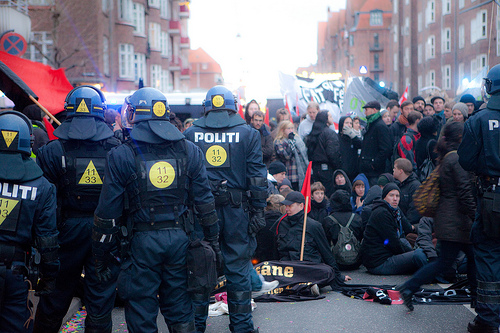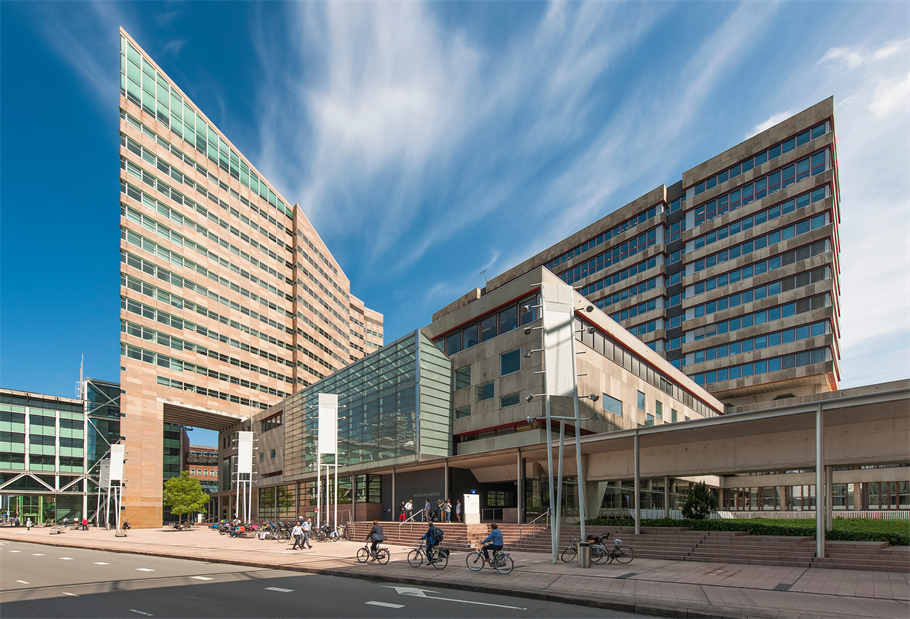Dane Warren and Nathan Utterback
Sabin Center Summer Interns and Rising 2Ls at Columbia Law School
On June 30, 2015, the United Nations Security Council (UNSC) held a special meeting on the topic “The Role of Climate Change as a Threat Multiplier for Social Security.” Convened at UN headquarters in New York by the Spanish and Malaysian missions to the UN, the meeting included a panel of experts and leaders who presented their opinions and testimony on the relevant issues, followed by short speeches from a number of country delegations. The major issues discussed by both the panelists and the delegates included the role of the UNSC in addressing climate change leading up to the Paris conference in December 2015, as well as the security and stability threats that result from drought, sea level rise, and global warming.
The UNSC has considered climate change on three previous occasions. In 2007, the United Kingdom organized the Council’s first open debate on the relationship between climate change and security issues. The debate produced no formal outcome document. In 2011, Germany arranged the second open debate on climate change and security, this time focusing specifically on sea-level rise and food insecurity. Following the debate, the Security Council unanimously passed a Presidential Statement that recognized the possible adverse effects of climate change on existing security issues and the potential threat of sea level rise on small island developing states (SIDS). The Statement called upon the Secretary General to include “contextual information” on the security implications of climate change in future reporting to the Council. In 2013, the United Kingdom and Pakistan co-sponsored another Arria-Formula meeting (similar to the one that took place on June 30) on the climate change and security.
The panelists opened the June 30 meeting with a speech by Jan Eliasson, the Deputy Secretary General of the UN, on the growing threat of climate change and the need for a “timeline for decisive action”. He asserted that positive climate change action within the UNSC would strengthen peace throughout the developing world and mitigate risks to the stability of regions where freshwater, land use, and access to food are all threatened by rising sea levels. He concluded with a powerful observation about the nature of climate change in relation to the international community: “We are not at peace with nature […] that’s what we have to face today.”
Roman Oyarzun Marchesi, Permanent Representative of Spain to the United Nations, who co-moderated the proceedings, followed with a speech on how the goals of the Security Council align with the need for comprehensive climate change policy. Calling on all of the delegations to act, he termed climate change a “silent threat” and emphasized that no country would be spared from its long term effects. He outlined three major questions that the UNSC should address: whether the UNSC was receiving information in an adequate context to deal with the threat of climate change, when and how should the Secretary General’s report from 2009 on climate change be updated, and how could the UNSC successfully mitigate and respond to threats caused by climate change. He also praised the recent efforts of the UN General Assembly in addressing climate change concerns, emphasizing the need for action in all bodies of the UN.
Tony DeBrum, Minister of Foreign Affairs of the Republic of the Marshall Islands, gave the keynote address. Pelenise Alof, Executive Director of the Kiribati Climate Action Network, also talked. Both spoke about the particular dangers facing small island nations as sea level rise reduces their habitable area. Minister DeBrum and Ms. Alofa called for specific and detailed action by the UNSC to protect the Pacific islands from threats to their sovereign landmass and to come up with solutions to the problems posed by massive displacement of the local populations and forced migration to other areas. Minister DeBrum also mentioned the “cruel irony” that the nations least endangered by rising sea levels are the ones in the best position to slow climate change.
Hindou Oumarou Ibrahim, Coordinator of the Associations for Indigenous Women and Peoples of Chad, provided a perspective on the security effects of climate change within the Sahel region of Africa. The desertification of much of the sub-Saharan regions of Chad, Mali, and Sudan puts almost 500 million hectares of land at risk of significant degradation, with Lake Chad, originally 25,000 km2, already reduced by more than 90% of its initial size. In addition to the obvious humanitarian consequences caused by the lack of arable land, the forced migration away from the desert regions has contributed to violent conflict within the Sahel countries as well as Africa as a whole. Even the heavy flooding in some regions is resulting in unexpected security concerns, including population displacement, border conflicts, and the spread of infectious diseases.
The last speaker of the panel, Michael Gerrard of the Sabin Center for Climate Change Law at Columbia Law School, addressed possible legal steps that the UNSC could take to implement mitigation and adaptation measures. The Security Council could theoretically enforce any decision made this December in Paris under Chapter VII of the UN Charter. The UNSC could even implement its own emissions targets and national obligations using its quasi-legislative power, as applied in UNSCR 1373 and 1540, although both of these options are unlikely to gather the necessary political support. Another option that is legally but not politically possible would be for the UNSC to ask the International Court of Justice for an advisory opinion on the obligations under international law of the industrialized states to reduce their greenhouse gas emissions. Even without the link between climate change and growing security concerns, the Security Council has the power to address forced migration. Professor Gerrard concluded by suggesting that the Security Council could undertake an independent evaluation after the Paris conference of where the world stands in controlling climate change, considering multiple emission scenarios and their respective security implications.
While a majority of the representatives at Tuesday’s event supported Security Council action on climate change and updating the 2009 Secretary General Report (mentioned above), deep divisions remained apparent. The European Union strongly supported an increased role of the Council in addressing climate change. Similar to its previous position in 2011, the EU argued that climate change acts as a “threat multiplier” to existing security problems such as food insecurity, water and other resource scarcity, natural disasters, desertification, and disease. Quoting from Frederica Mogherini, High Representative of the Union for Foreign Affairs and Security Policy, EU member states stressed that, “Climate change does not belong to a remote future. It is all around us. It affects us directly. It is already impairing our security environment.” The Italian representative went further, noting that drought in Syria and migratory flows in Africa have already contributed to serious international security threats.
Though somewhat light on specifics, the United States supported a role for the Security Council in addressing climate change. The U.S. representative agreed that climate change acts as a “threat multiplier” and that the Secretary General should update the 2009 report on Climate Change and its Possible Security Implications. The U.S. representative went on to say that the Security Council should “stay informed” on the security implications of climate change and take a “leadership role” on the issue. Additionally, the United States lent support for the Nansen Initiative, a non-U.N., intergovernmental body working to fill the legal gap for people displaced by climate and other environmental issues. While many members of the EU stressed the importance of a binding agreement from the upcoming UNFCCC Paris talks in December, the United States avoided using such terminology.
Where the European Union and the United States stressed the impact of climate change as a “threat multiplier”, small island developing states (SIDS) focused on the much more immediate threat. According to representatives from various SIDS, sea level rise endangers their very survival as a nation. Speakers from all pacific island nations pleaded with the Security Council to recognize the threats that they already face, including increased flooding and salinization of fresh water resources. Papua New Guinea, speaking on behalf of many pacific island states, urged the Council to take serious action in addressing climate-related displacement and the existential threat to national identity stemming from rising sea levels.
Perhaps showing cracks in Group of 77 solidarity, the pacific islands and many African nations strongly endorsed Security Council action on climate change. African representatives focused on the massive threats of desertification and heat waves, especially in sub-Saharan Africa, on their domestic and international security situation. The drastic loss of Lake Chad over the past thirty years came up multiple times over the course of the debate, with many African states noting that conflict has risen as a result of forced migration from the area. Quite interestingly, many representatives from African states expressed concern that climate change exacerbates radicalism and terrorism in the region. According to many speakers, climate change often contributes to economic and social insecurity, which in turn contributes to increased poverty and recruitment of young people into radical movements, such as Boko Haram. As the representative from Chad stated, “Unemployed youth, lacking all prospects, are easy prey for criminal and terrorist organizations.”
A minority of speakers strongly opposed Security Council action on climate change, including China, Russia, and Brazil. As permanent members of the Council, China and Russia hold vetoes that have stopped Security Council action on climate change thus far. Per the U.N. Charter, any action by the Security Council requires the affirmative vote of all five permanent members (United States, United Kingdom, France, Russia, and China). The Russian representative recognized that climate change has security implications (something that country had not previously stressed), but once again argued that the Security Council was not the proper forum to consider the issue. China suggested that the Council did not have the expertise and administrative capacity to handle such a complex task. Brazil was the only country to openly question the link between climate change and security, stating: “Climate change is no threat in and of itself.”
Many developing nations also stressed the importance of Common But Differentiated Responsibilities – the notion that developed countries have a larger role to play in mitigation than developing nations due to their past emissions levels. Based on past UNFCCC agreements, developing nations have called on developed countries to provide financial assistance and to share renewable energy technology. For the first time in an open Security Council debate, many developed nations responded by discussing the Green Climate Fund and their commitment to investing in the mitigation and adaptation efforts of less developed countries.
The final statement of the day came from the Egyptian representative, who claimed to be speaking on behalf of the Group of 77, arguing against Security Council involvement in climate change. However, other G77 countries presented opposing views throughout the meeting, and cast doubt on whether the Egyptian statement actually represented G77 views.



